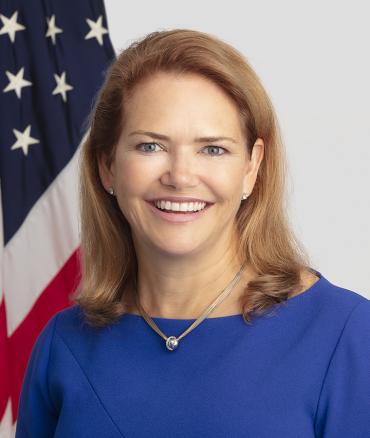Evidence Accelerator Model – A Critical Catalyst Towards A Learning Health System
Dr. Amy Abernethy reflects on the work accomplished through the Evidence Accelerator as well as its potential for the future as she ends her tenure as Principal Deputy Commissioner of Food and Drugs at the FDA.

Many of you are aware that my career has had some unique and unexpected turns – including time in academia, clinical research, international care delivery, health tech, and most recently in government service. While each of these “stops” along the way offer distinct lenses and opportunities, my core focus, the ‘north star’ that compels me each day, is the need to take care of the patient sitting in front of me. When practicing in my oncology clinic, treating melanoma patients, I envisioned a time when I could walk into the room (or today through a virtual platform) and know that the care and decisions would be informed by similar individuals with melanoma who came before, while also tailored to the patient’s individual needs and characteristics. This model and aspirational system is what we refer to as a learning health system. In this system each individual’s experience is collected through data that is curated and continuously put to use for a variety of tasks, while also respecting personal privacy and fostering trust.
Our national and global shared experience with COVID-19 crystallized the criticality of near real-time, real-world data (RWD) to generate insights and actionable information; and the imperative to drive towards a learning health system. The Reagan-Udall Foundation, in close collaboration with Friends of Cancer Research, brought their strength as a public-private convener to aid in this important effort creating the COVID-19 Evidence Accelerator. Each one of you has contributed to this effort in a meaningful way.
You all know well what this community has accomplished together and how novel this endeavor has been. As I reflect today, just a year past our first official ‘lab meeting’ on April 16, 2020, I am heartened, humbled, and energized by what is possible. "Way back in April 2020” (!), we thought we would be furiously working into the summer – sprinting as we used to say – and then doing a lot more scientific work into the fall and maybe focusing on vaccines and getting back to “normal.” Predicting the future is hard! Moving on to the marathon, the Evidence Accelerator community adapted and continued to bring forward challenges, digging into the parallel analyses, expanding our spheres of focus, spanning boundaries and evolving as we continue to learn. This has all been done in part by subscribing to a set of principles that guide these efforts, with ruthless transparency at the fore.
The Evidence Accelerator model has created a mechanism for engagement with diverse stakeholders to build and create solutions for the future. Critical to this has been a belief that we are better when we have all voices at the tables, listening to each other and learning together. For example, we intentionally included data and tech experts since they are often missing from the design phase of these projects; the goal is to ensure new ideas and solutions have a (virtual) ‘seat at the table’ to partner with the broader scientific community. Such an approach is key to unlocking the vast streams of data in service of solving critical questions in COVID-19.
The Evidence Accelerator is a force for progress – spend time taking stock of the community, how the conversations have moved forward, and what we have learned. Critical to this has been the share of voice and offering an equal seat at the table to a community of stakeholders willing to work together to address the pandemic, including data/tech, regulatory, academia, clinicians, patients, analysts, and more. Harness this diversity – think about what seat might be missing – draw upon the energy and shared experience of COVID-19 to continue that important work, and envision the ways it can be replicated, refined, and scaled. There are many problems to be solved beyond COVID!
I am an ardent champion for the transformative promise of data and the application of a variety of data sources to contribute to the totality of the evidence. There are myriad drops, streams, and rivers of data including data that are passively collected from within the ecosystem of care delivery, patient-generated health data like symptom information or sensors in our watches, social and environmental data, and biological data from laboratory tests or discovery sciences. We need to learn to leverage all types of available data in a responsible way, to create a system where data translates to improvement in health. We need to keep improving the datasets themselves. We need to keep advancing the rigorous scientific methods to generate insights from these datasets. And more! There is so much to do and addressing critical COVID-19 questions together has helped to chart the path of the possible.
As I close-out my official post at FDA, know that I will continue to cheer on the work you are doing in the Evidence Accelerator community. Remember, hard things are hard, but doable when we are addressing important tasks, and doing the work together.
A huge and hearty thank you.
